Share
It’s very interesting that Judaism is quite pro free market. And it’s interesting why. Number one, there’s a fascinating law in economics discovered by a Jewish economist in the 18th century called David Ricardo. And it’s called the law of comparative advantage. And the law of comparative advantage says, you may be better than I am at everything, but so long as you are better at some things than others, and I am better at some things than others, then we will both gain if we work at what we’re best at and then we trade. Now, isn’t that a beautiful idea? It means that you’re a better fisherman than I am. You’re better at making axe heads than I am. But so long as you are better at making axe heads than at fishing, and I’m better at fishing than making axe heads, you specialise in axe heads. I specialise in catching fish, and we trade. That means that there’s something that I can contribute, something that everyone can contribute to the economy. And it all benefits us all.
So Judaism loves the market economy because it means we each have a contribution to make. It benefits as well in another way. And we sometimes forget this. The single greatest force for peace in the world is trade. When two different cultures meet and clash, they can do two things. They can fight one another, or they can trade with one another. If they fight with one another, somehow they will both lose. If they trade with one another, they will both win. Now that is an extraordinary saying.
And let’s go further. Not only does trade constitute the greatest single force against war, it has also historically been the greatest single source of tolerance. You look at the history of tolerance in the world, it tracks exactly the trajectory of the world’s great trading nations. So the most tolerant place in the world in the 16th century was Venice. The most tolerant place in the world in the 17th century was Holland, 18th century Britain. Why? Because they were trading centres, and trade has been not just a force for peace, but the greatest single force for tolerance. So we respect the market economy.
But, and there’s a but, it maximises general welfare, but it doesn’t guarantee a fair distribution. In the market economy, some people can get very rich and many people can get very poor. Therefore, the Torah says periodic redistributions. The whole Torah welfare system of the tithes and the year of release and cancellation of debts and returning of ancestral property – a bit like international debt relief. So what we have here is market economy is great in terms of utilising each of our talents for the general good, but equitable distribution needs a little occasional intervention in the market economy. And there is of course, a wide range of debates about whether that should be big time, small time between the classic Keynesian economists and the classic welfare economists on the one hand and the Milton Friedman guys on the other.
But the principle of the market economy with periodic or systematic corrections so that there’s basic justice, that is the basis of a free society that is tolerant, and that recognises human dignity. Each of us because of the law of comparative advantage, having something to contribute.
More JInsider Videos
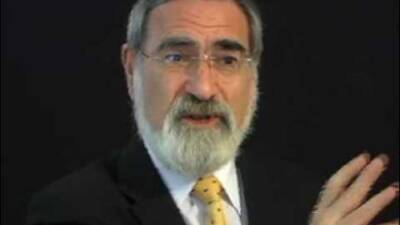
Rabbi Sacks on the Jewish Narrative
JInsider (March 2010)
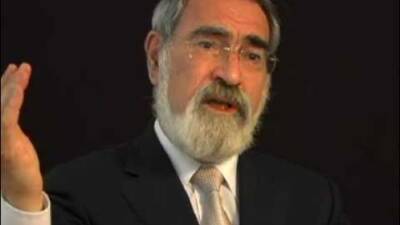
Rabbi Sacks on Future Tense Take Aways: Part 1
JInsider (March 2010)
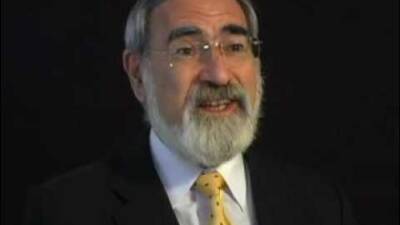
Rabbi Sacks on Future Tense Take Aways: 2
JInsider (March 2010)
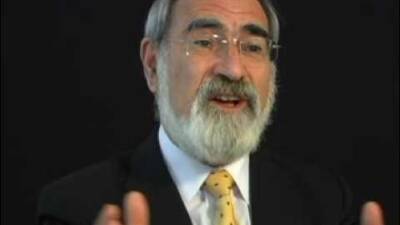
Rabbi Sacks on the Universal Jewish Story
JInsider (March 2010)
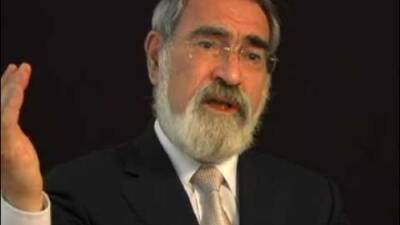
Rabbi Sacks on Eco-Judaism Roots
JInsider (March 2010)
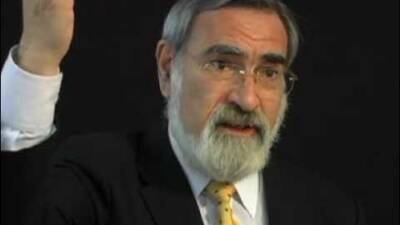
Rabbi Sacks on Peoplehood
JInsider (March 2010)

Rabbi Sacks on an Engaged Judaism
JInsider (March 2010)
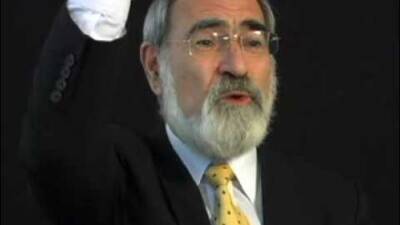
Rabbi Sacks on Charity Priorities
JInsider (March 2010)
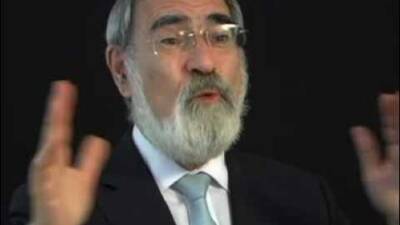
Rabbi Sacks on a Responsible Life
JInsider (March 2010)
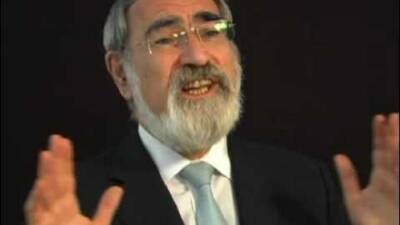
Rabbi Sacks on Reconciliation
JInsider (March 2010)
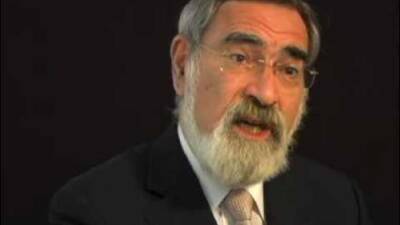
Rabbi Sacks on Community Conflict
JInsider (March 2010)
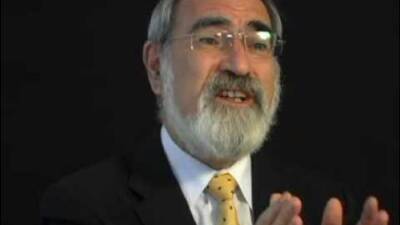
Rabbi Sacks on Particularism vs Universalism
JInsider (March 2010)
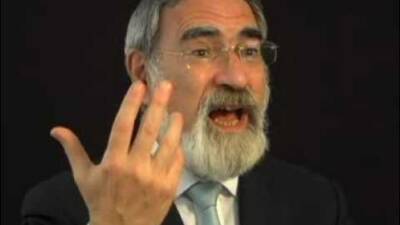
Rabbi Sacks on a Culture of Hope
JInsider (March 2010)
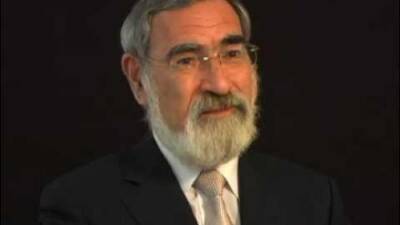
Rabbi Sacks on his Personal Hatikvah
JInsider (March 2010)
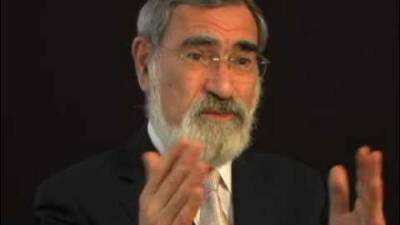
Rabbi Sacks on Israel and Jewish Society
JInsider (March 2010)
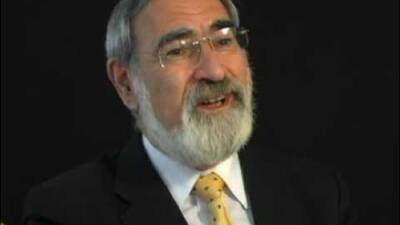
Rabbi Sacks on Torah in Today's World
JInsider (March 2010)
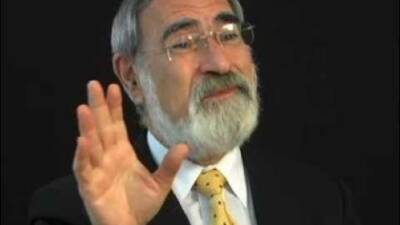
Rabbi Sacks on Prayer
JInsider (March 2010)
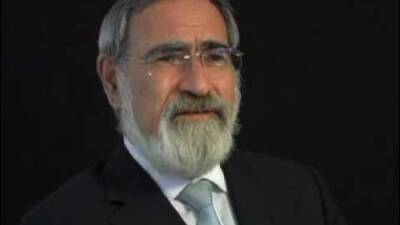
Rabbi Sacks on Indifference
JInsider (March 2010)
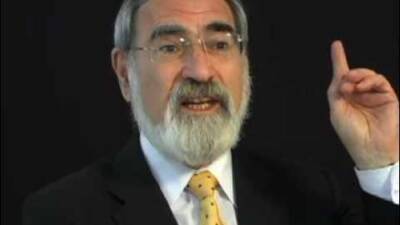
Rabbi Sacks on the Jewish Role in the World
JInsider (March 2010)
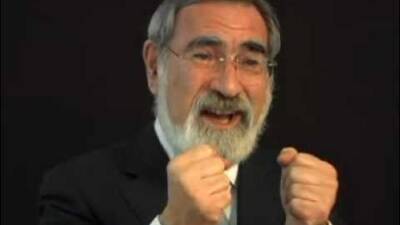
Rabbi Sacks on Torah and the Real World
JInsider (March 2010)
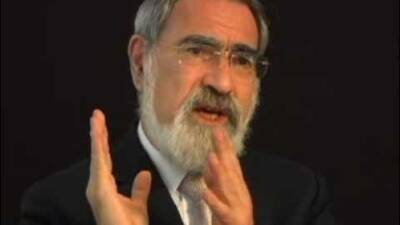
Rabbi Sacks on Antisemitism
JInsider (March 2010)
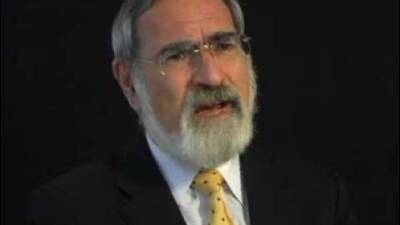
Rabbi Sacks on Future Tense
JInsider (March 2010)
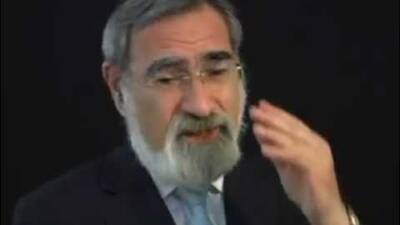
Rabbi Sacks on Love as Deed
JInsider (March 2010)
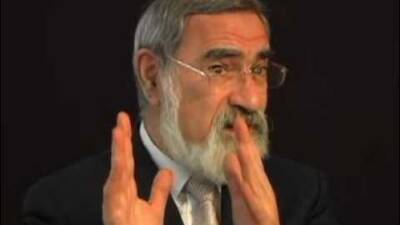
Rabbi Sacks on Combatting Antisemitism
JInsider (March 2010)
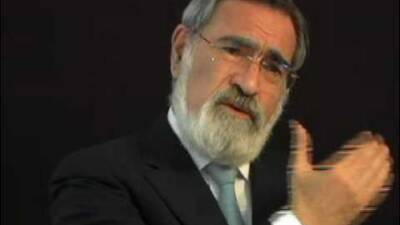
Rabbi Sacks on Material Loss
JInsider (March 2010)
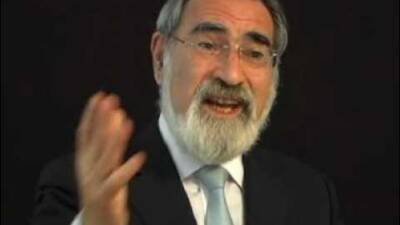
Rabbi Sacks on the Antidote to Materialism
JInsider (March 2010)
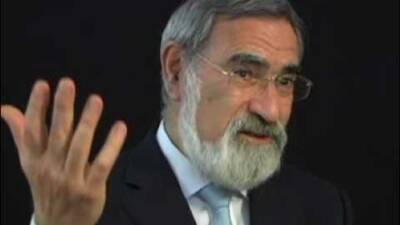
Rabbi Sacks on Parenting
JInsider (March 2010)
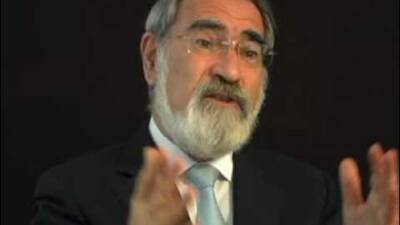
Rabbi Sacks on a Tzedakah Tale
JInsider (March 2010)
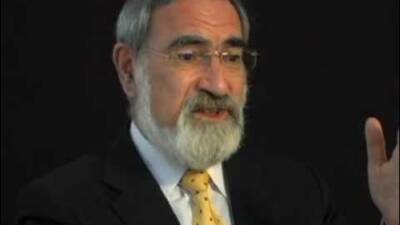
Rabbi Sacks on a Family Story
JInsider (March 2010)
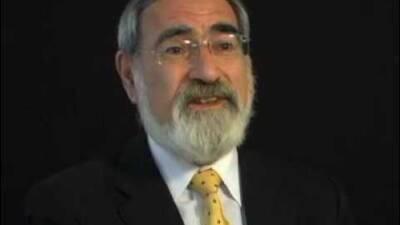
On the Internet and Judaism
JInsider (March 2010)
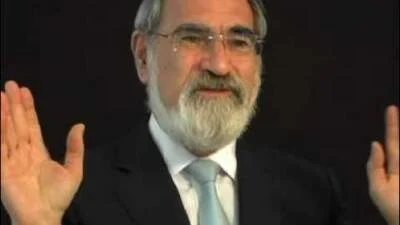
Rabbi Sacks on Plato's Ghost
JInsider (March 2010)
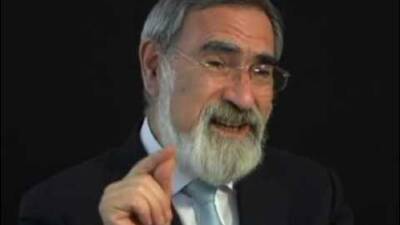
Rabbi Sacks on Optimism vs. Hope
JInsider (March 2010)
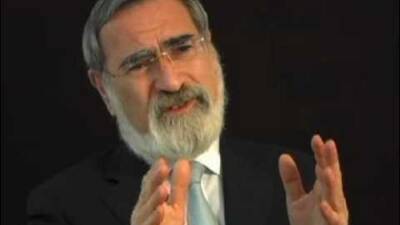
Rabbi Sacks on Victim Mentality
JInsider (March 2010)
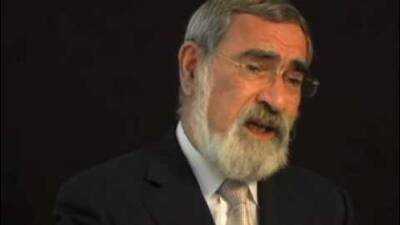
Rabbi Sacks on Jerusalem
JInsider (March 2010)
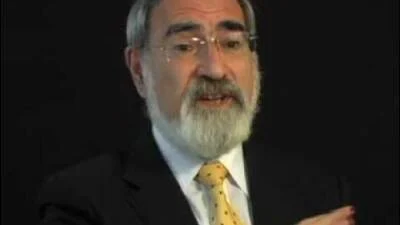
Rabbi Sacks on Advice for our Times
JInsider (March 2010)
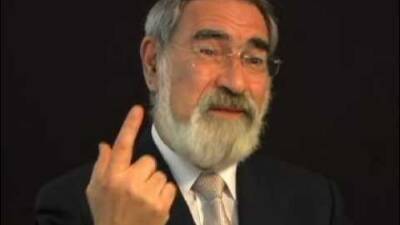
Rabbi Sacks on Fundamentalism
JInsider (March 2010)
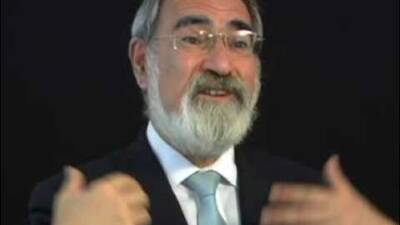
Rabbi Sacks on Time
JInsider (March 2010)
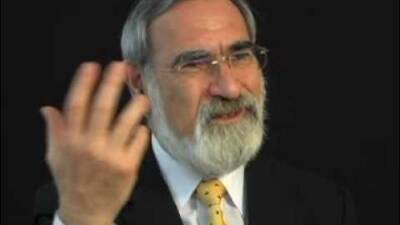
Rabbi Sacks on the Chosen People
JInsider (March 2010)
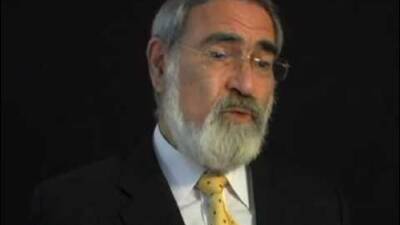
Rabbi Sacks on 21st Century Israel
JInsider (March 2010)
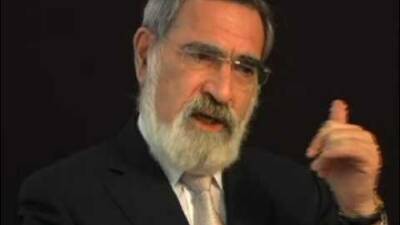
Rabbi Sacks on the Origins of Antisemitism
JInsider (March 2010)
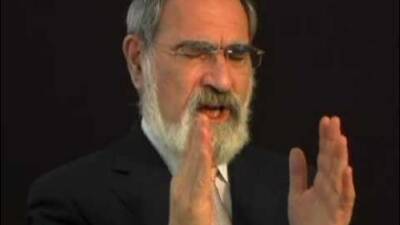
Rabbi Sacks on Understanding Jewish Exile
JInsider (March 2010)
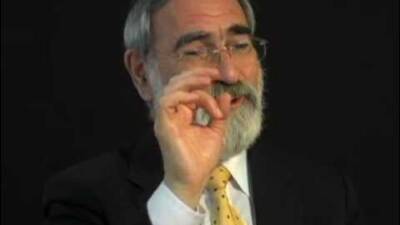
Rabbi Sacks on Anger
JInsider (March 2010)
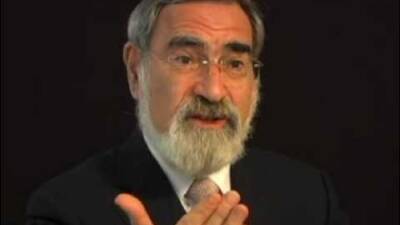
Rabbi Sacks on the Historical Evolution of Antisemitism
JInsider (March 2010)
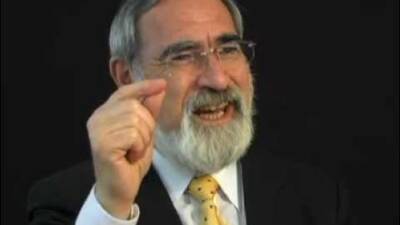
Rabbi Sacks on Interfaith Relations
JInsider (March 2010)
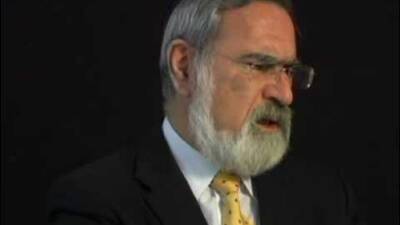
Rabbi Sacks on Coincidence and Providence
JInsider (March 2010)
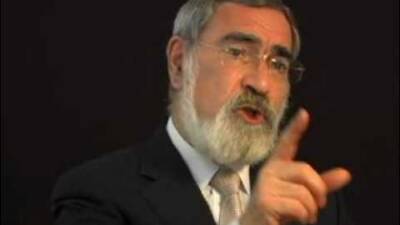
Rabbi Sacks on Free Will
JInsider (March 2010)
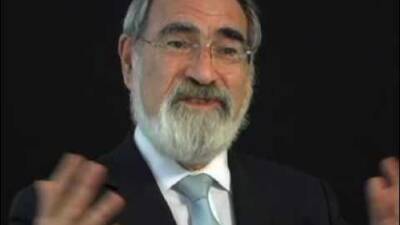
Rabbi Sacks on Family and Marriage
JInsider (March 2010)
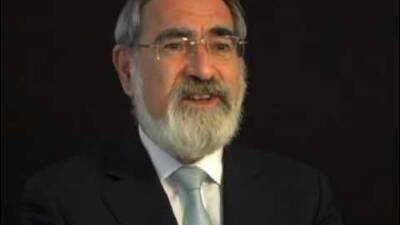
Rabbi Sacks on Tzedakah Defined
JInsider (March 2010)
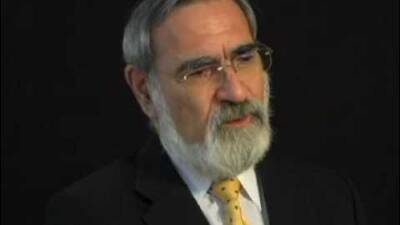
Rabbi Sacks on Daily Life
JInsider (March 2010)
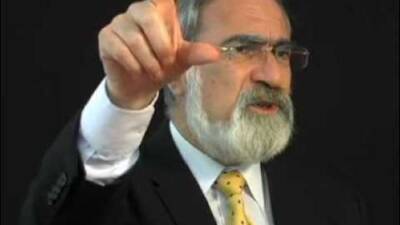
Rabbi Sacks on Being Jewish
JInsider (March 2010)

Rabbi Sacks on his Personal Rebbe, Rabbi Nachum Rabinovitch
JInsider (March 2010)
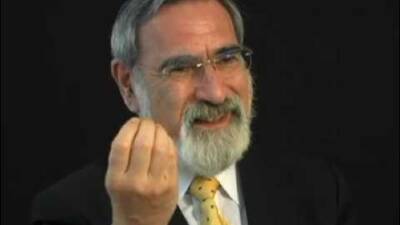
Rabbi Sacks on Connecting to God
JInsider (March 2010)
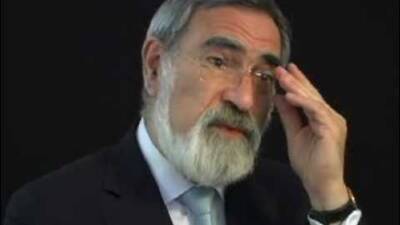
Rabbi Sacks on God and Evil
JInsider (March 2010)
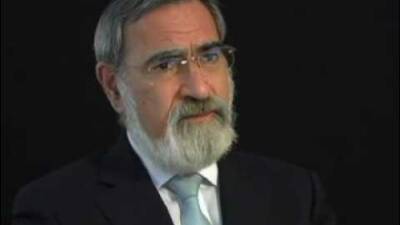
Rabbi Sacks on Dialogue with Atheists
JInsider (March 2010)

Rabbi Sacks on Doubt
Jinsider (March 2010)
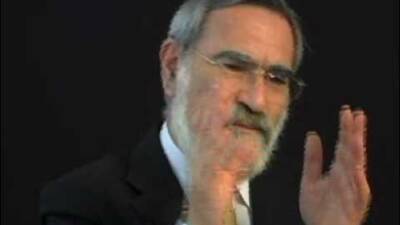
On Tikkun Olam
JInsider (March 2010)
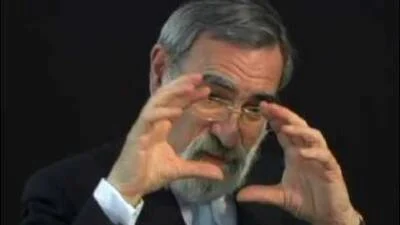
Rabbi Sacks on a Response to Atheism
JInsider (March 2010)
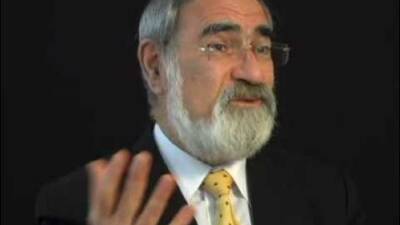
Rabbi Sacks on Finding Purpose
JInsider (March 2010)
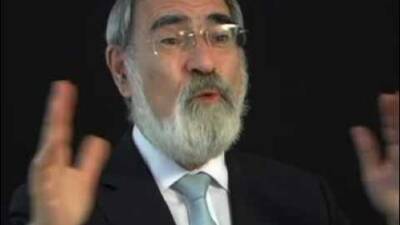
Rabbi Sacks on a Responsible Life - Example
JInsider (March 2010)
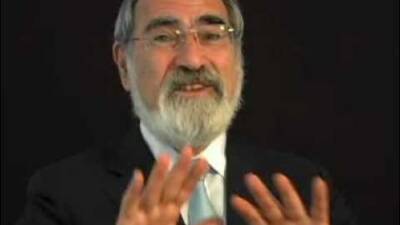
Rabbi Sacks on the Dignity of Difference - Part 2
JInsider (March 2010)
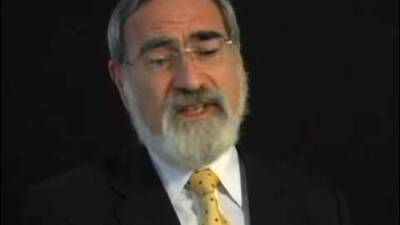
Rabbi Sacks on the Dignity of Difference - Part 1
JInsider (March 2010)
